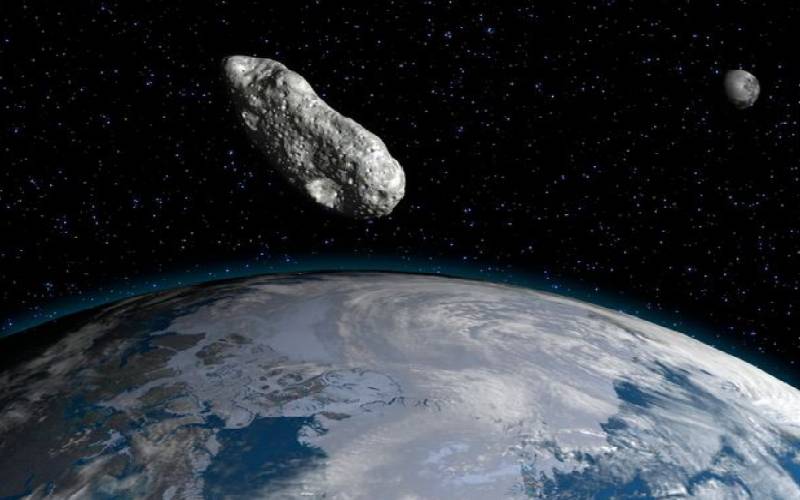
An enormous asteroid is set to fly past Earth next month, NASA has revealed.
The asteroid, dubbed 52768 (1998 OR2), is estimated to be 1.8-4.1 kilometres in diameter. At the higher end of that estimate, it suggests the space rock could be around half the size of Mount Everest!
It’s set to pass Earth on April 29 at 09:56 GMT, at which point it will be 3.9 million miles from our planet.
While that might sound far away, it’s classed as a ‘close approach’ by NASA.
If you have a telescope, you should be able to see the asteroid passing our planet, but if you don’t have one, don’t panic.
The Virtual Telescope Project in Rome will host a free, online public viewing of the asteroid on April 28, 2020, so you can watch the passing here.
Thankfully, the chance of the asteroid colliding with our planet is extremely low.
However, NASA hasn’t written off the chances of an asteroid collision in the near future.
NASA discovers around 30 new ‘near-Earth objects’ (NEOs) every week, and at the start of 2019 had discovered a total of more than 19,000 objects.
However, the space agency has warned its NEO catalogue isn’t complete, meaning an unpredicted impact could occur at ‘any time.’
NASA explained: “Experts estimate that an impact of an object the size of the one that exploded over Chelyabinsk, Russia, in 2013 – approximately 55 feet (17 meters) in size – takes place once or twice a century.
“Impacts of larger objects are expected to be far less frequent (on the scale of centuries to millennia)
“However, given the current incompleteness of the NEO catalogue, an unpredicted impact – such as the Chelyabinsk event – could occur at any time.”
 The Standard Group Plc is a multi-media organization with investments in media
platforms spanning newspaper print
operations, television, radio broadcasting, digital and online services. The
Standard Group is recognized as a
leading multi-media house in Kenya with a key influence in matters of national
and international interest.
The Standard Group Plc is a multi-media organization with investments in media
platforms spanning newspaper print
operations, television, radio broadcasting, digital and online services. The
Standard Group is recognized as a
leading multi-media house in Kenya with a key influence in matters of national
and international interest.











